Search
Search Results

Image
Eagle Statue from Hatra
The head of this sculpture of an eagle seems to have been deliberately broken. The rest of the body rests on a plateau. Below there are statuettes of priests who, as in all other Hatra statues, raise their right hands with the palms facing...
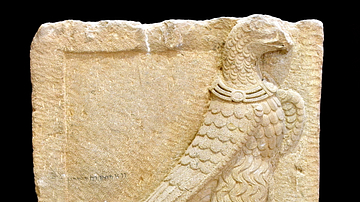
Image
Relief of an Eagle from Hatra
The eagle was the symbol of the Hatrene army and reflects victory. There are Aramaic inscriptions below the eagle and behind his wings about certain laws in the city of Hatra. From Hatra, Ninawa Governorate, Iraq. Parthian period, 1st to...
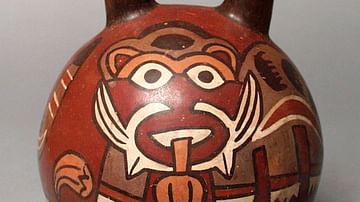
Image
Nazca Double-spouted Pot
A typical double-spouted pot with handle of the Nazca civilization of ancient Peru (200 BCE-500 CE). The design is also typical of Nazca art: Bold lines and colours, often depicting mythical transformational creatures. (Los Angeles County...
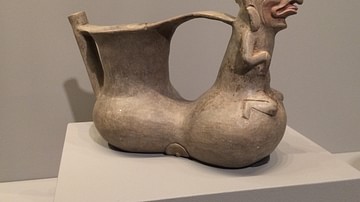
Image
Zapotec Double-chambered Vessel
A double-chambered vessel with figured handle. Zapotec civilization, 300 BCE-300 CE, Mexico. (St. Louis Art Museum, Missouri)
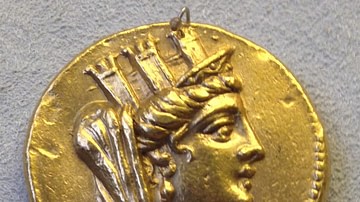
Image
Tyche On a Golden Double Shekel
Golden double shekel from Tyre in today's Southern Lebanon, dated 104/103 BCE, two decades after the Phoenician city regained its independence from the fading Seleucid Empire, depicting the head of deity Tyche (Fortuna), wearing a crown of...
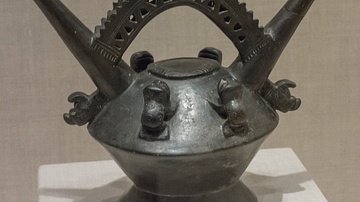
Image
Lambayeque Double-spouted Pot
A double-spouted pot in silver, made in imitation of pottery examples. From the Lambayeque Civilization of northern Peru, 900-1375 CE. (Art Institute of Chicago)
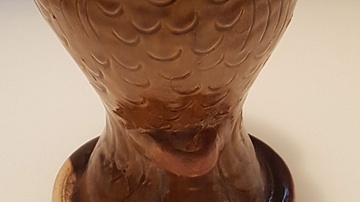
Image
Tang Dynasty Double-Fish Flask
Stoneware double-fish flask with brown glaze. 25 cm (height). Tang Dynasty, 600s-700s CE. Xi'an Museum. (Photo taken at the Art Gallery of NSW, Sydney Australia)
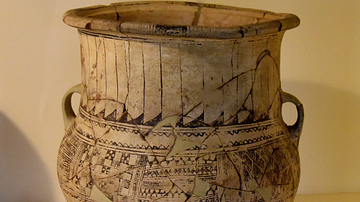
Image
Double-Handed Jar
Painted double-handed terracotta jar. 8th century BCE. From Bogazkoy (Boğazkale) or Carchemish, in modern-day Turkey. (Museum of Archaeology, Istanbul, Turkey).
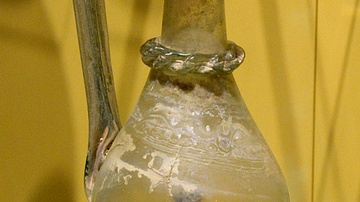
Image
Roman Double Glass Vessel
This remarkable cast Roman vessel contains a 2nd miniature vessel attached to its base. Double vessels/flasks have been discovered in both western and eastern parts of the Roman World. This suggests that craftsmen were in direct contact with...
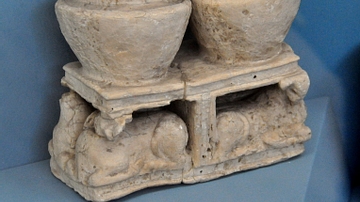
Image
Double Vessel from Shuruppak
A double vessel with a base of four bulls. From Shuruppak (modern-day Tell Fa'rah, Iraq), southern Mesopotamia. Early dynastic period, 2570-2342 BCE. (Istanbul Archaeological Museums/Ancient Orient Museum, Istanbul, Turkey).